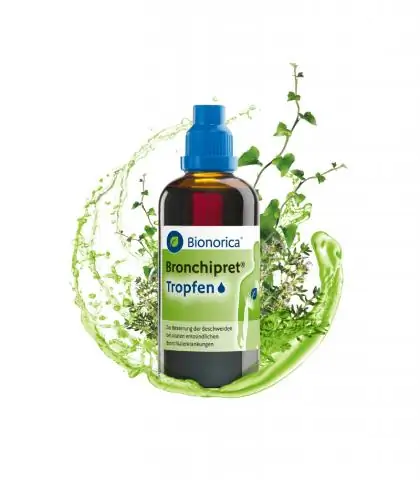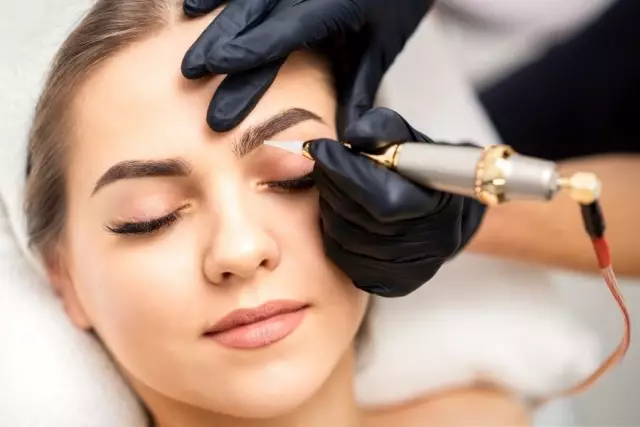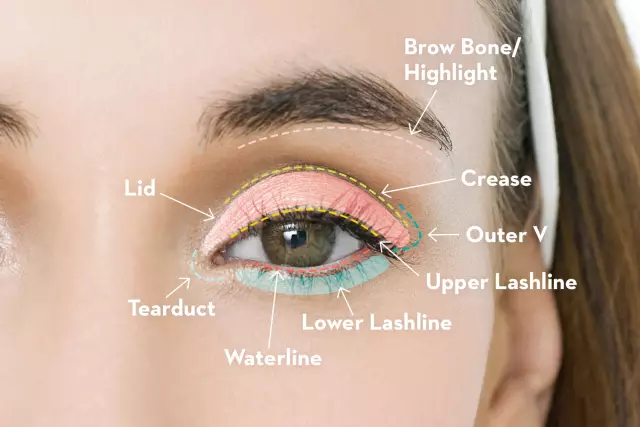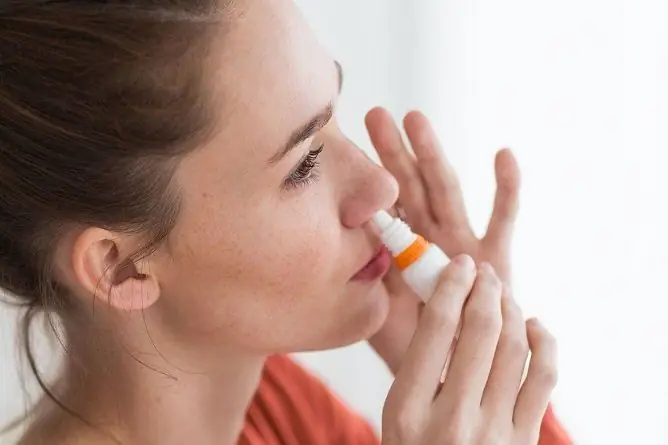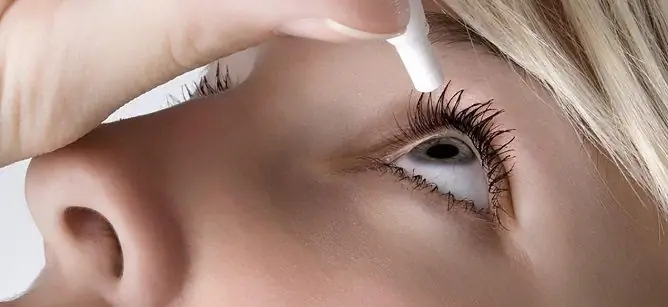- Author Rachel Wainwright wainwright@abchealthonline.com.
- Public 2023-12-15 07:39.
- Last modified 2025-11-02 20:14.
Efralia
Efralia: instructions for use and reviews
- 1. Release form and composition
- 2. Pharmacological properties
- 3. Indications for use
- 4. Contraindications
- 5. Method of application and dosage
- 6. Side effects
- 7. Overdose
- 8. Special instructions
- 9. Application during pregnancy and lactation
- 10. Use in childhood
- 11. Drug interactions
- 12. Analogs
- 13. Terms and conditions of storage
- 14. Terms of dispensing from pharmacies
- 15. Reviews
- 16. Price in pharmacies
Latin name: Euphralia
ATX code: V30 (not assigned)
Active ingredients: euphrasia officialis + calendula officialis + magnesia carbonica (Euphrasia officinalis + Calendula officinalis + Magnesia carbonica)
Manufacturer: BOIRON (France)
Description and photo update: 2020-29-04

Efralia is a homeopathic medicine used in ophthalmic practice for eye irritation.
Release form and composition
The drug is produced in the form of homeopathic eye drops, which are a colorless, transparent liquid (0.4 ml each in polyethylene containers, in a sachet made of aluminum foil 5 containers welded together, in a cardboard box 2 or 4 sachets and instructions for use Ephralia).
Composition per 100 g drops:
- active ingredients: eyebright (Euphrasia officinalis) D3 - 1 g; magnesium carbonate (Magnesia carbonica) C5 - 0.25 g; calendula officinalis (Calendula officinalis) D3 - 0.25 g;
- excipients: purified water, sodium chloride.
Pharmacological properties
Pharmacodynamics
Efralia is a multicomponent homeopathic remedy, the action of which is due to the ingredients that make up the drops. It has analgesic, antimicrobial and antiphlogistic effects. It helps to normalize the muscle tone of the eye and improve tissue trophism, reduce irritation of the conjunctiva, reduce excessive eye strain and increase lacrimation.
The therapeutic activity of the active ingredients that make up the drops:
- Magnesia carbonica (magnesium carbonate): reduces the susceptibility of nociceptors, thereby reducing the severity of pain;
- Calendula officinalis (calendula officinalis): relieves irritation, accelerates the regeneration of damaged tissues, has a pronounced antispasmodic and soothing effect;
- Euphrasia officinalis (eyebright): inhibits the activity of pathogenic microflora, prevents dehydration of the mucous membrane of the eye, restoring the secretion of tear fluid.
Pharmacokinetics
There is no data.
Indications for use
The drug is used to treat discomfort and irritation of the mucous membrane of the eyes, which are the result of excessive eye strain, exposure to dust, smoke, as well as chlorinated or sea water.
Contraindications
Absolute:
- sharp eye pain;
- purulent discharge from the eyes;
- eye injuries of various origins;
- pregnancy;
- children under 1 year old;
- hypersensitivity to the individual components of the drops.
With caution, Efralia is prescribed to women during breastfeeding.
Efralia, instructions for use: method and dosage
Efralia eye drops are applied topically by instillation into the conjunctival sac of the affected eye (s).
1-2 drops are instilled into each eye. The frequency of application is from 2 to 6 times a day.
Instructions for using the drug:
- Open the sachet bag.
- Separate 1 plastic container from the others.
- Turn the head of the container, thereby opening it.
- To instill the drug, pull down the lower eyelid, and look up. Dispense 1-2 drops into the conjunctival sac.
- Remove the remaining containers in a sachet bag and close it by folding the open side inward.
Side effects
To date, no cases of side effects of Efralia have been reported.
If any adverse reactions occur, the patient should consult a doctor.
Overdose
To date, drug overdose has not been observed.
special instructions
During the entire period of using Efralia eye drops, it is not recommended to wear contact lenses, since the active components of the homeopathic solution have a negative effect on the hydrogel structure of the product.
If after 2 days of treatment with the drug there is no therapeutic effect, you should consult an ophthalmologist.
During instillation, it is required to avoid contact of the tip of the container with the eyeball or eyelashes.
The opened container cannot be stored.
Influence on the ability to drive vehicles and complex mechanisms
Efralia does not affect the ability to perform potentially hazardous activities that require special attention and quick response (for example, the work of an operator, dispatcher, vehicle management, etc.).
Application during pregnancy and lactation
The use of a homeopathic drug during pregnancy is undesirable, since there are no clinical data on its use in this group of patients.
If there is a need to use Efralia while breastfeeding, you should first consult your doctor. The drug is prescribed when the expected benefit to the patient outweighs the potential risk to the child.
Pediatric use
Efralia should not be administered to children under 1 year old.
Drug interactions
Homeopathic medicines can be combined with other medicines without restriction.
If it is necessary to use other ophthalmic solutions simultaneously with Efralia, a 15-minute interval should be observed between instillations.
Analogs
The analogues of Efralia are Oftalik, Mirtikam, Okulokhel, Euphrasia, Hilo-kea, etc.
Terms and conditions of storage
Store out of the reach of children at a temperature of + 12 … + 15 ° С.
The shelf life is 3 years.
Terms of dispensing from pharmacies
Available without a prescription.
Reviews about Efralia
There are few reviews about Efralia, and they are rather contradictory. According to some patients, the drug helps well, eliminating dry and tired eyes, as well as increased tearing. Others complain that the drops are ineffective and have almost no effect on the condition of the mucous membrane of the eyes.
Price for Efralia in pharmacies
The price of Efralia in the form of 0.4 ml eye drops (10 plastic containers per pack) is about 300 rubles.

Elena Minkina Doctor anesthesiologist-resuscitator About the author
Education: graduated from the Tashkent State Medical Institute, specializing in general medicine in 1991. Repeatedly passed refresher courses.
Work experience: anesthesiologist-resuscitator of the city maternity complex, resuscitator of the hemodialysis department.
Information about the drug is generalized, provided for informational purposes only and does not replace the official instructions. Self-medication is hazardous to health!


